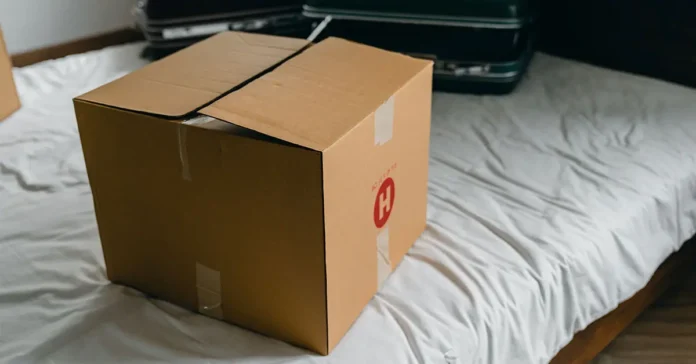Downsizing isn’t just about moving into a smaller house; it’s about creating a space that aligns with your lifestyle goals for retirement. Whether you’re seeking a more manageable home, reducing maintenance responsibilities, or freeing up finances for other pursuits, downsizing offers a myriad of advantages. With this guide on Downsizing Home for Retirement, you can easily understand the benefits, challenges, and practical steps.
Retirement life does not necessarily mean being bored and alone at home. It can open a brand-new vista if only you approach it with an open mind and start planning ahead of time. In this guide, we’ll delve into strategies for decluttering, maximizing space, and making the most of every square foot. You’ll learn how to prioritize what truly matters, optimize storage solutions, and create a comfortable environment that supports your well-being.
Downsizing Home for Retirement?
A big part of that planning lies in sorting out your financials and then settling into a lifestyle that is peaceful and exciting. Downsizing your home after retirement can be a big decision, but it can also provide many benefits, including reduced expenses and simplified living. Get ready to embrace a simplified, stress-free living experience as you embark on this downsizing journey tailored for your retirement years.
Reasons for Downsizing Home for Retirement
Downsizing is not a new concept. It means moving from a larger place to a smaller one. This usually involves selling off some of your stuff and keeping only the essentials. The idea behind downsizing is simple – spend less and save more. While all age groups have started to adopt downsizing nowadays, there are several reasons why it is particularly appealing to retirees:
1. To Reduce Stress:
You need to embrace life after retirement with love and grace. It is your time to be free and rediscover the simple pleasures of the leisure that a bustling work life robbed from you. Downsizing home for retirement can help you take away the stress of house maintenance and instead give you more time to pursue hobbies thus far neglected. Each year, caring for and maintaining your home necessitates a significant amount of time, cost, and bodily wear and tear. Bigger and older the house, the more care it takes to keep it functional and tidy.
2. To Reduce Expenses:
The first thing most retirees need to get used to is living on a certain budget because their sources of income are limited. This is not a bad thing. If you invest a few years ahead of your retirement, you need not worry about your retirement savings running dry. Nevertheless, when you downsize your home by giving away excess items and moving to a smaller space, you will be adding to your savings. Your house loan will be lesser, taxes reduced and monthly expenditure on utilities will also be significantly lesser than for a bigger house. You can either invest the money you save or indulge in a travel experience or a hobby that you never had the time for.
3. To Declutter Your Mind:
When you have a big home, you have more cupboards and more scope to line up its shelves with things you do not need. You end up cluttering your living space with this suffocating lifestyle. Once you get rid of all the unnecessary things taking up space at home, you will see that you do not require so much space at all. Live light in a small house with minimal possessions. You will feel so much lighter and refreshed. Focus on decluttering your life of material possessions and making room for beautiful memories with the people you love.
Roadblocks to Overcome while Downsizing
1. Battling Emotional Attachment
One of the biggest problems in downsizing is letting go. If you have lived for several years in a house in a particular locality, moving out and away is a big ask. The house is a big part of your life, like a family member and leaving it can be exceedingly difficult. The more time you have spent there, the more memories it held. Do not underestimate the emotional component of packing up and leaving a place you have called home for years, if not decades. You could be leaving the home where you raised your children, or a home filled with too many memories to count. It can be unbearable to think about leaving these behind. There will be a part of you trying to find reasons not to move at all. You need to power through the emotional rollercoaster.
Reason with yourself:
– Remember why you need to downsize.
– Remind yourself about how much you will be saving.
– Tell yourself this is a new chapter and calls for a fresh start.
– Treasure the memories and get ready to make new ones.
2. Dealing with Lesser Storage Space
A smaller home is easier to maintain but at the time of moving from a bigger home to a smaller home, you need to understand that you will have to give away at least half of the things you own. If you downsize from a 3,000-square-foot home to a 1,500-square-foot home, for example, you must reduce furniture and other possessions to compensate for the loss of half your space. If you do not find a way to reduce the number of your possessions while moving, you might end up cramping up the new home. Once you have decided to downsize your home, the first thing you need to do is declutter. This is no mean task.
– Start small and then gradually increase the size of the decluttering zones. Pick a countertop that has too many things on it and pick them apart. Then work on a cabinet. Then work on the whole room. The junk goes in the trash bag right away. Amongst what remains, organise the items you need neatly on the counter. The other items can go into storage or can be donated/ sold.
– If you are unable to donate or sell personal items, you can always choose to put some of your prized possessions in storage. Self Storage India can provide you with the perfect storage space to put away items that you do not need but cannot give away either. They may not fit in your new home, but they can be packed and stored away.
– There is no need to force yourself to get rid of everything. Amongst the items that we have but do not use, there are bound to be many that have immense sentimental value. You can delay getting rid of these items by putting them in temporary storage for the time being.
3. Adjusting to a New Lifestyle in a New Neighbourhood
Years of living in a particular locality make us develop a routine and a sense of belonging to that space. Moving calls for a complete rehaul. You need to start from scratch. Besides being smaller, your new home might be further away from the people and places that you are familiar with. This means you need to get acquainted with the new neighbourhood and find all the stores and eateries around your new home.
– Approach this new chapter in your life as an adventure instead of wearing yourself out merely thinking about finding a new grocery store, launderer, pharmacy, etc.
– The move will also bring about a change in your social circle. You will be meeting new people, which means new friends and new memories.
– Put a positive spin on all the changes by never losing sight of your goal – the reason behind the move.
A Correct Method for Downsizing Home for Retirement
Retiring from a job and assuming a quiet life is a big challenge irrespective of whether we loved going into work every day or loathed it. Staying home and making time for all those things you could never do when you had a 9 to 5, will be possible once you retire. Choosing to downsize your living space as you embrace this new phase of life, will simplify the transition process. However, when you decide to downsize, do it right.
1. Plan with Precision
It always pays to plan especially when the task ahead is quite as heavy as downsizing your home space. The most meticulous downsizers will begin planning their move a year or more in advance. If you have lived in that house for decades, it is likely you have amassed many possessions that will take some time to sort through. Suppose you own the house you must decide what will become of the space once you move out. Are you planning to sell the place? Or would you want to rent it out? Do some research into the real estate market in your locality. Talk to agents and find out what the trends are. These insights will help you buy you figure out the best place to buy your new home as well.
Whether you are putting your house up for sale or renting it out, you need to prepare the place. Prospective tenants/ buyers are more likely to keep your house in mind if they see it in good condition. Hence start working on the place months ahead of the move. Fix leaks, mend broken doors, give the house a fresh coat of paint, check the wiring, and make sure every room is as good as new.
2. Get Organised.
Do not wait until the very last minute to declutter your house. This will slow you down and cause a lot of stress. “Decisions about what to keep and what to do with the rest can create decision paralysis,” Anna Novak, downsizing expert, and owner of Simply Downsized LLC. “It’s a huge reason people have a hard time getting started.” Once you have made up your mind about the move, start the decluttering process. Space out your work because there is bound to be tons of items to sort through. To ensure that you get decluttered and organised in time:
- Make a note to declutter on your calendar and start as planned.
- Make lists of contractors, movers-and-packers, self-storage facilities, etc
- Declutter one room at a time. Do not rush the process.
- Force yourself to take decisions on every single object in the room.
- Items that you cannot part with but cannot keep at home can go into a self-storage unit.
- Begin with larger items and work your way down.
- Label items depending on whether they are staying, going into storage or being sold/donated.
- Put away all valuables and important documents in a safety locker until after the move, to prevent them from getting lost.
3. Hire Professionals for Specific Jobs.
Decluttering is more of a personal task, which means there is no one better suited for the job than you. However, there are other tasks that you can professionals do. Do not wait till the very end to bring them onboard. You may think that you have everything under control and will be able to pull it off, and by the time you realise you have bitten off more than you can chew, it might be too late. Getting trained professionals to help you make informed decisions is a smart move. Some experts who will lighten your burden are:
– Financial Advisors.
Anyone who is going into retirement needs a sound financial plan. Financial Advisors will go through all your data and give you a clear picture of where you stand financially. They will tell you how much you can invest in a new home or if renting out a smaller space is the better decision. They can tell you how much to save and how to build your savings in the years to come. When you have solid data to back your plans it gives you a sense of security and confidence, rather than shooting in the dark.
– Real Estate Agents.
Selling your old place and buying a new one is way more stressful than you think. Instead of pouring over the Real Estate Classifieds, it is better to talk to someone who does that professionally. A Real Estate Agent will help you find a home that fits your budget. He can also help you get the best price on your old house, should you decide to sell. Most Real Estate Agents will handle all the paperwork for you. Just give them all the information and documents required, and your move will be smooth and stress-free.
– Decluttering Experts.
While you are the best judge of what to keep and what to throw, given your emotional attachment to everything you own, you might find it difficult to decide. Decluttering Experts can help you identify problem zones in your home and help you make tough decisions. They can share a schedule and give you suggestions on how to go about the process objectively. For most people getting started is the process. Once you see how much of a difference decluttering makes to your living space, you will find it easier to get rid of unwanted stuff.
– Packers and Movers.
Professional packing material is available at any hardware store and even online. While it can be tempting to do it all by yourself with the aid of a few DIY (Do It Yourself) videos, the task of moving house is not so simple. Professional Packers will know exactly what type of packing is needed for distinct types of items to protect them from damage during transit. Likewise, if you have set aside furniture and other items for storage, professional packers will be able to pack the goods in such a way that they will hold good through transit and stay unharmed even after several months of storage. Of course, you can pack some of your possessions – your valuables and important documents, for instance – but leave the bigger chunk of packing to the professionals.
Items to get rid of while downsizing
1. Clothes that are out of style or that do not fit you anymore.
Most wardrobes that are filled to the bursting point have more clothes that are never used than ones that are worn. You need to sort through the chaos, and taking practical decisions. Do not keep clothes that do not fit you anymore because you think you may reach that size once more. Likewise, if certain styles have gone out of fashion, they should not take up space in your wardrobe. However, if you think they may come back in vogue once more, put them in a storage box and parcel them to your self-storage unit.
2. Broken or worn-out pieces of furniture.
First, you must understand what you have before deciding what to keep and what to discard. One method is to conduct a furniture inventory and make a list of each room in your home, including outdoor spaces such as the garage or shed. After taking inventory, go through your list and figure out what you want to do with each piece.
You may not want to part with a bulky armchair because it has been in your family for generations. However, if it is too big for your new home, you just must accept the fact that it needs to go. Give it away or put it in storage. This rule applies to every piece of furniture you own. Sort through them and keep only the ones that are in good condition and that will not crowd your new home. Antique pieces go into storage but everything else that is wobbly and dust-laden, must be given away.
3. Duplicates or Obsolete Electronic Gadgets.
Often, we do not get rid of the old gadget when we upgrade to a newer one. Your junk drawer might have a whole bunch of old mobile phones and TV remotes. You may still have your old toaster and microwave oven in a storage cabinet as backup for when the new ones stop working. All these duplicates and obsolete goods will only take up unnecessary space in your smaller new home. If you have unopened electronic goods that you think might come in handy soon, put them in storage and retrieve them when the need arises. All other broken and malfunctioning electronics goods need to go. If you can sell them as scrap do so, else put them in the trash.
4. Books, Magazines and Toys that are not used anymore.
If you are a book lover, parting with your books can be quite difficult but if your new home does not have space for a lavish reading nook then you must do something. Donate to a public library or pack them and put them in storage. Children’s books and toys that your kids have outgrown can be donated to a children’s home or sold online. Books and toys of sentimental value can be put into storage. Old magazines are of little use. Find out if they can be recycled and repurposed.
5. Hobby Equipment that you seldom use.
Over the years you may have tried your hand at various hobbies. You may have lost interest in many of them and not found the time for the ones you loved. Retirement time is ideal to pick up where you left off, but first look at all the hobby equipment you have lying around the house. Pile them all up in one corner. This will put the clutter into perspective. Pick out the items you lost interest in and give them away. From the rest, choose items that are in working condition and see if you can breathe life into them during retirement. If your hobby equipment includes bulky sporting gear like skis and rafts, then perhaps you could put them in storage and take them out when you have the time to explore those options once more.
6. Items you bought on a whim and Miscellaneous goods.
Impulse buys often end-up gathering dust. It may have seemed a promising idea at the time but then for reasons best known to you, these gadgets barely saw the light of day. Just because they cost a ton, you do not have to keep them. See if you can sell it or give it to someone who will use it. Old CDs and DVDs are of no use today. You may have boxes of them lying around. If they contain personal videos, then transfer them to your laptop and carefully destroy the discs. If they are just collections of movies and songs, you know for sure you are never going to use them because today everything is available online. Put them in storage or give them away.
This goes to the many small items that line your shelves and crowd countertops – items that you bought or were given to you, but you never use. Depending on the sentimental value, you can choose to get rid of them or store them. If you have a junk drawer – approach it with no mercy. If you have never used the item in the last six months, you are not going to use it.
Items to keep while downsizing
1. Important Documents and Paperwork
It may seem like an easy decision, but when you are surrounded by stacks of papers, it is quite easy to get bored of sorting and end up blindly throwing away documents. When you sit down to declutter documents, take extra time and care to ensure you keep all the important ones. Have a bunch of files to help organise and label the documents. Double-check the paper stack that you throw in the trash. Wills, warranties, financial papers, tax returns for the previous seven years, various licenses, and insurance papers are all examples of documents you must keep in a safe place. You can consider putting them in a safety locker.
2. Sentimental Items
As you attempt to declutter your home you will come across items that may not have functional value, but you love dearly for sentimental reasons. This could be the first watch you were gifted or a worn-out pair of shoes that reminds you of an important journey. Sift through these sentimental items you possess and take a call on what you will keep in the house and what you will put in storage. Do not be in a hurry to dump everything in the trash, you might regret the decision.
3. Family Heirlooms
Some of your possessions may have been in your family for generations. These could be jewellery, clothes, pieces of furniture, vases, paintings, or decorative artefacts. If they are looking old and withered see if they can be given a facelift. These items represent your family, your culture, and your identity. Keep them for the memories they hold, irrespective of whether you use them or not.
4. Photographs.
Printed photographs have a very vintage feel to them in this age of digital imagery. If you come across a bunch of photographs, get yourself a few albums and organise the picture as best you can. Once you have placed all your photos in a folder or boxes you can label them and keep them in a self-storage unit. Self Storage India provides its customers with 24-hour access and top-notch security for their belongings.
5. Rare items or Antiques
Rare pieces of art have great monetary worth. If you possess such paintings, sculptures, or works of art, keep them. Determine the value of such items. You never know when you might need to sell a couple of them. If your new home does not lend itself up to putting all these rare pieces on display, you can get them packed and put into storage. Self Storage India allows customers to take out and put in items at any time they choose. This means you can change the wall decor according to your liking.
Final Words on Downsizing Home for Retirement
Downsizing home for retirement is a transformative journey that offers numerous benefits and opportunities for a fulfilling lifestyle. The main goal of retirement life is to enjoy your time doing things you love. Downsizing your home will reduce the financial burden as well the stress of having to maintain a big house.
Downsizing isn’t just about letting go of things or moving to a smaller space; it’s about creating a home that reflects your priorities, supports your lifestyle goals, and brings you joy and comfort every day. Take your time to plan the move, and execute every step with utmost care. Set yourself a deadline and slowly work towards it. Do not let your emotions get the better of you as you sort through your stuff and start packing. Never lose sight of your goal.
FAQs on Downsizing Home for Retirement
A1: It refers to the process of moving to a smaller and more manageable residence typically after retiring, often to reduce expenses, maintenance, and overall living space.
A2: This offers various benefits such as lower living costs, reduced maintenance responsibilities, simplified living arrangements, and unlocking home equity for retirement funds.
A3: Consider factors like your financial situation, lifestyle preferences, housing needs, and long-term retirement goals to assess.
A4: Factors to consider include location, size, amenities, affordability, accessibility, proximity to healthcare facilities, and overall suitability for your retirement lifestyle.
A5: This can positively impact your retirement finances by reducing housing expenses, freeing up equity, lowering property taxes, and more manageable budget in retirement.
A6: Tips include creating a downsizing plan, sorting belongings into categories, prioritizing essential items, donating or selling unused items, and utilizing storage solutions.
A7: Downsizing can bring emotional benefits such as reduced stress from managing a smaller space, increased freedom and flexibilityand the opportunity for a fresh start.
A8: Attachments to belongings, adjusting to a smaller living space, dealing with relocation logistics, and managing family dynamics.
A9: Yes, consult with an expert to assess your financial situation, explore housing options, understand market trends, and make informed decisions.
A10: Always plan, communicate with family members, seek support from professionals, and focus on creating a comfortable retirement lifestyle.








